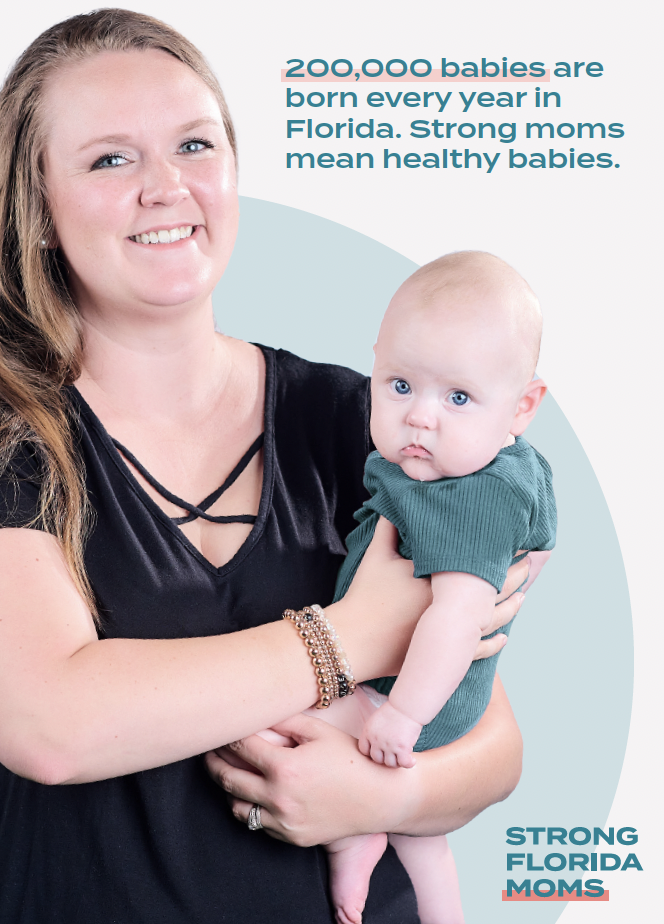It's a New Day in Public Health.
The Florida Department of Health works to protect, promote, and improve the health of all people in Florida through integrated state, county, and community efforts.
After Pregnancy
Contact the Maternal and Child Health Section
- 850-245-4465
-
Fax
850-245-4047 -
Mailing Address
Maternal and Child Health Section
4052 Bald Cypress Way, Bin A13
Tallahassee, FL 32399-1721
 Right now, you are focused on caring for your new baby. But as a new mother, you must take special care of your body after giving birth and while breastfeeding, too. Doing so will help you regain your energy and strength.
Right now, you are focused on caring for your new baby. But as a new mother, you must take special care of your body after giving birth and while breastfeeding, too. Doing so will help you regain your energy and strength.
When you take care of yourself, you are able to best care for and enjoy your baby.
- Breastfeeding
- Baby Blues and Postpartum Depression
- Health Care for Children
- Nutrition and Wellness
If you're able, breastfeeding your baby for 6 months with continuation of breastfeeding for 1 year or longer, is ideal for lifelong health. Babies who are not breastfed and women who do not breastfeed may have more health issues than babies who are breastfed and women who breastfeed.
- Infants who are not breastfed are at higher risk of obesity, diabetes, asthma, and ear infections.
- Mothers who do not breastfeed have higher stress levels and are more likely to be overweight. They also are at higher risk of breast, ovarian, and endometrial cancer; type 2 diabetes; osteoporosis; and rheumatoid arthritis.
The baby blues is common term used to describe mood swings, crying spells, and feelings of worry, sadness, and tiredness following the birth of a baby. Up to 80% of new mothers reported experiencing these feelings, however they are usually mild and go away on their own within one to two weeks.
Postpartum depression is associated with more severe, long lasting feelings of depression. Postpartum depression can occur in about 15% of women after childbirth. Postpartum depression is not a character flaw or a weakness. If suspect that you have postpartum depression, seek help from your health care provider.
Contact your provider right away if your symptoms last longer than two weeks, if your symptoms get worse, if you are having trouble caring for your baby or doing daily tasks, or if you have thoughts of harming yourself or your baby. The faster you receive treatment, the faster you can enjoy your new baby.
If you or someone you know is in crisis or thinking of suicide, get help quickly.
- Call your health care provider
- Call 911 for emergency services or go to the nearest emergency room
- Call the toll-free 24-hour hotline of the National Suicide Prevention Lifeline at 800-273-TALK (1-800-273-8255); TTY: 800-799-4TTY (4889)
Access to health care is critical for mothers, in addition to babies and toddlers. As children grow and have changing health needs, making sure your baby has a primary care provider is a huge step to help them develop healthfully.
Programs are in place that can assist with health care coverage growing families.
Staying healthy after pregnancy and priorizing your child's health and nutrition are important in lifelong wellness.
Learn more about available healthy eating and nutrition resources for both mothers and children.



Connect with DOH